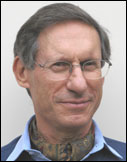Source: NPEC Conference
 "Those who do not remember the past are condemned to repeat it." (George Santanaya1)
"Those who do not remember the past are condemned to repeat it." (George Santanaya1)
International Atomic Energy Agency (IAEA) safeguards are both the principal means of verifying a state’s compliance with international nuclear obligations, as well as detecting the potential transgression of these obligations. In the coming years, the IAEA will be asked to safeguard an increasing number of nuclear facilities, including new types of facilities (such as laser enrichment and pyroprocessing plants, floating nuclear power plants and nuclear propelled submarines) and decommissioned ones. It will need additional funds to procure new types and more effective equipment, and expertise to carry out these additional responsibilities.
But the real issue does not stem from resource constraints. Even with greater human and financial resources there is nothing more the Agency would have done in fulfilling its verification mandate in Iran and North Korea.
The real constraint was identified by current IAEA Deputy Director General for Safeguards Herman Nackaerts in a July 2011 speech. “Experience has shown,” he stated, “that proliferation risk is not only associated with the amount of declared nuclear material that a State possesses or the number and type of declared facilities. Indeed, the major proliferation challenges have arisen in States with limited nuclear fuel cycle facilities, and involved previously exempted or undeclared nuclear material.... [The safeguards] system was manifestly failing in its primary objective, namely, to detect activities that did raise potential compliance issues and proliferation concerns – such as those undertaken, for instance, in Iraq, Libya, Syria and Iran.”
There are two main reasons the safeguards system has been “manifestly failing.” First, the Department of Safeguards doesn’t have the legal authority it needs to fulfill its mandate and to provide the assurances the international community is expecting from its verification activities. Second, the Department lacks the necessary cooperation and transparency from Member States of the IAEA. Redressing both deficiencies would significantly strengthen the role of IAEA safeguards in preventing further proliferation.
1. George Santayana (1863-1952) was a Spanish American philosopher, essayist, poet, and novelist.





